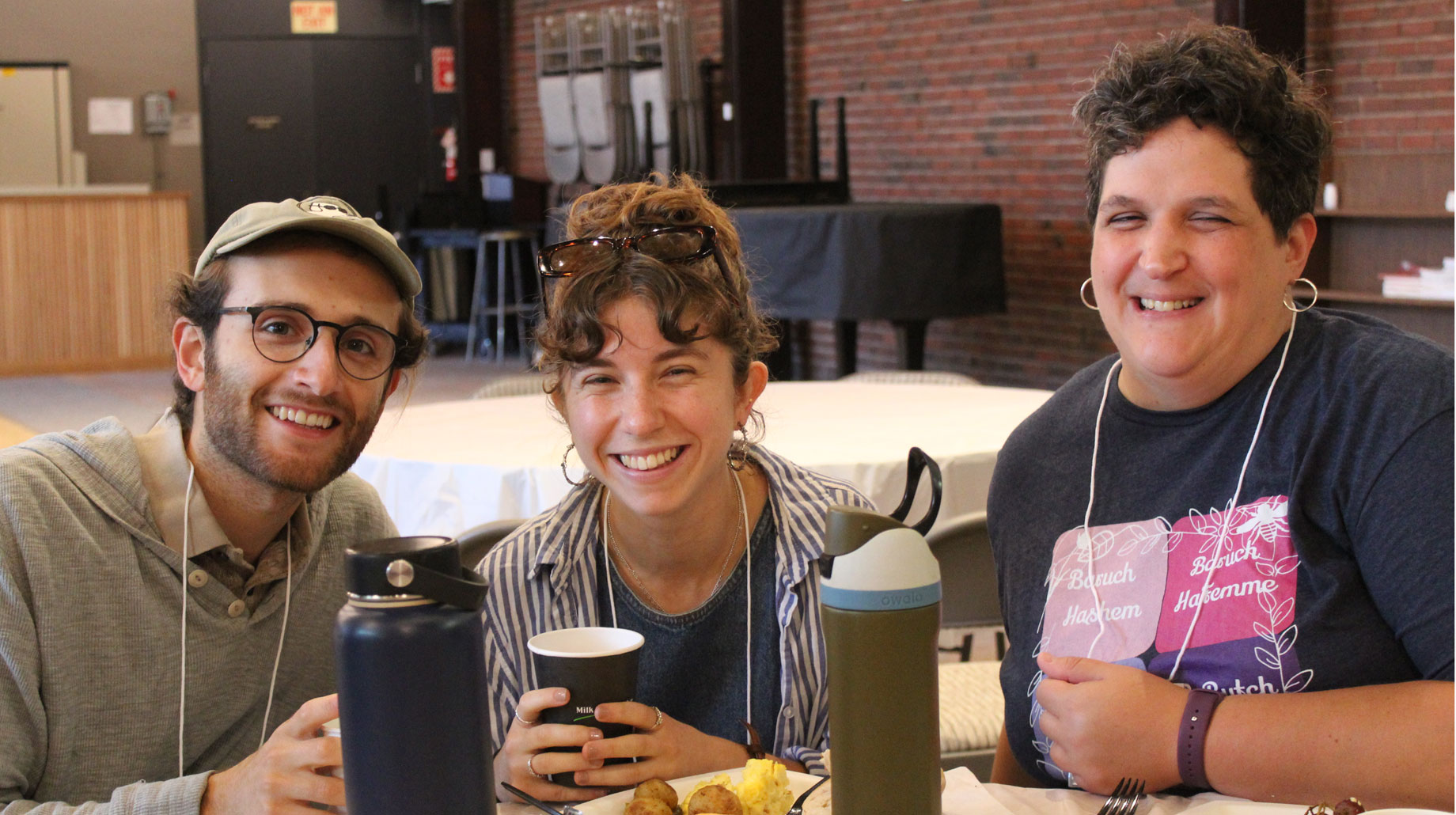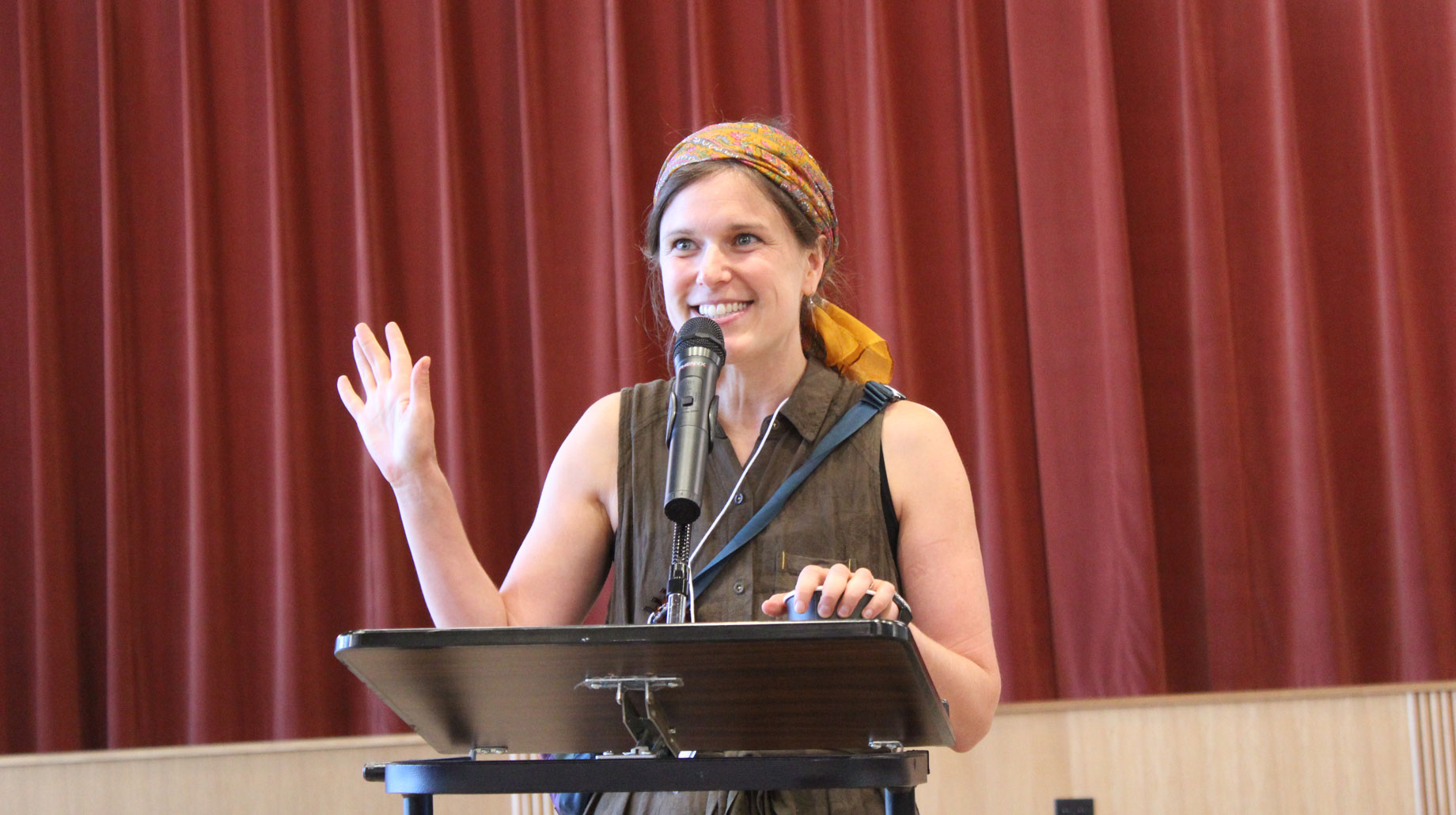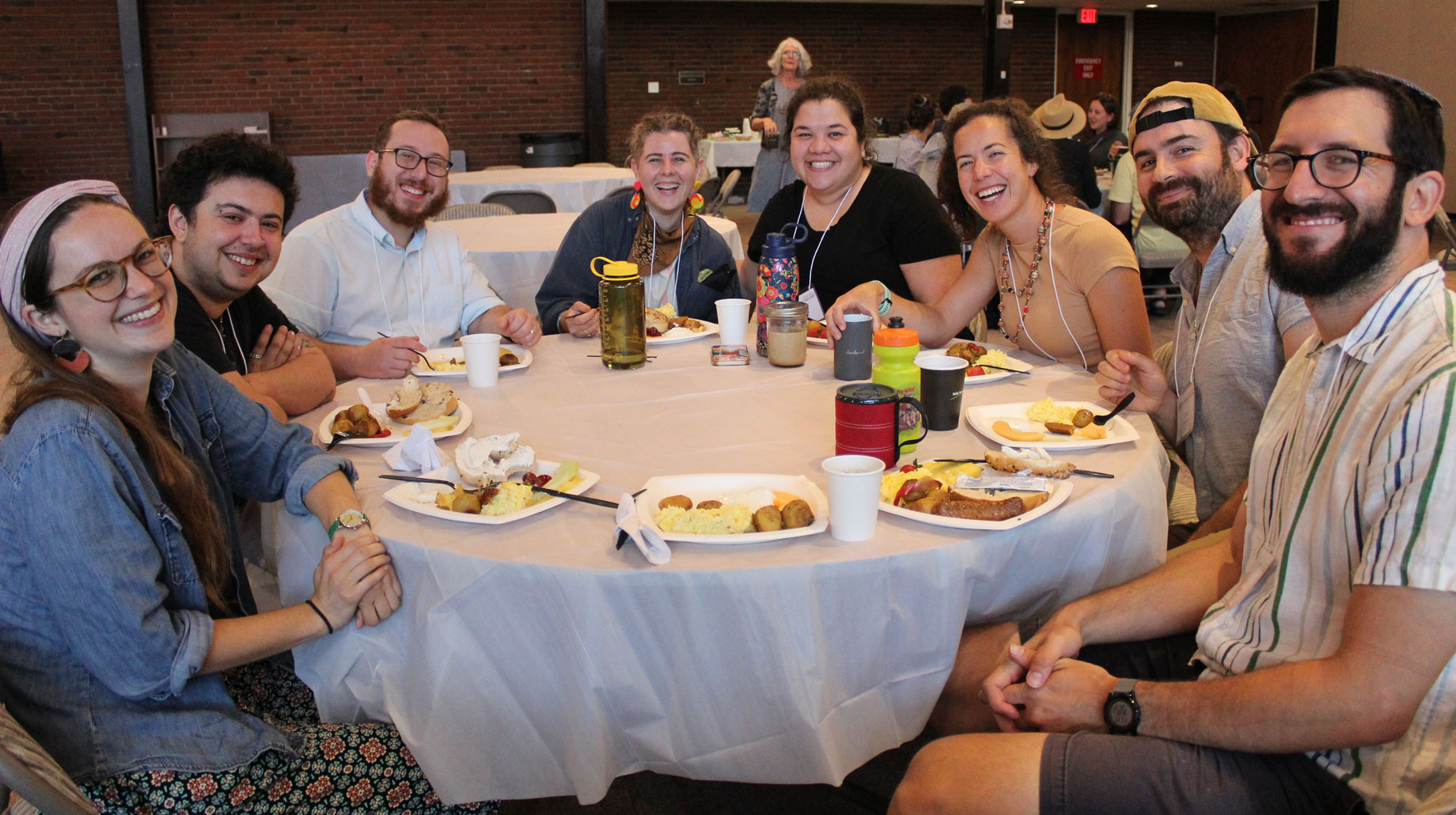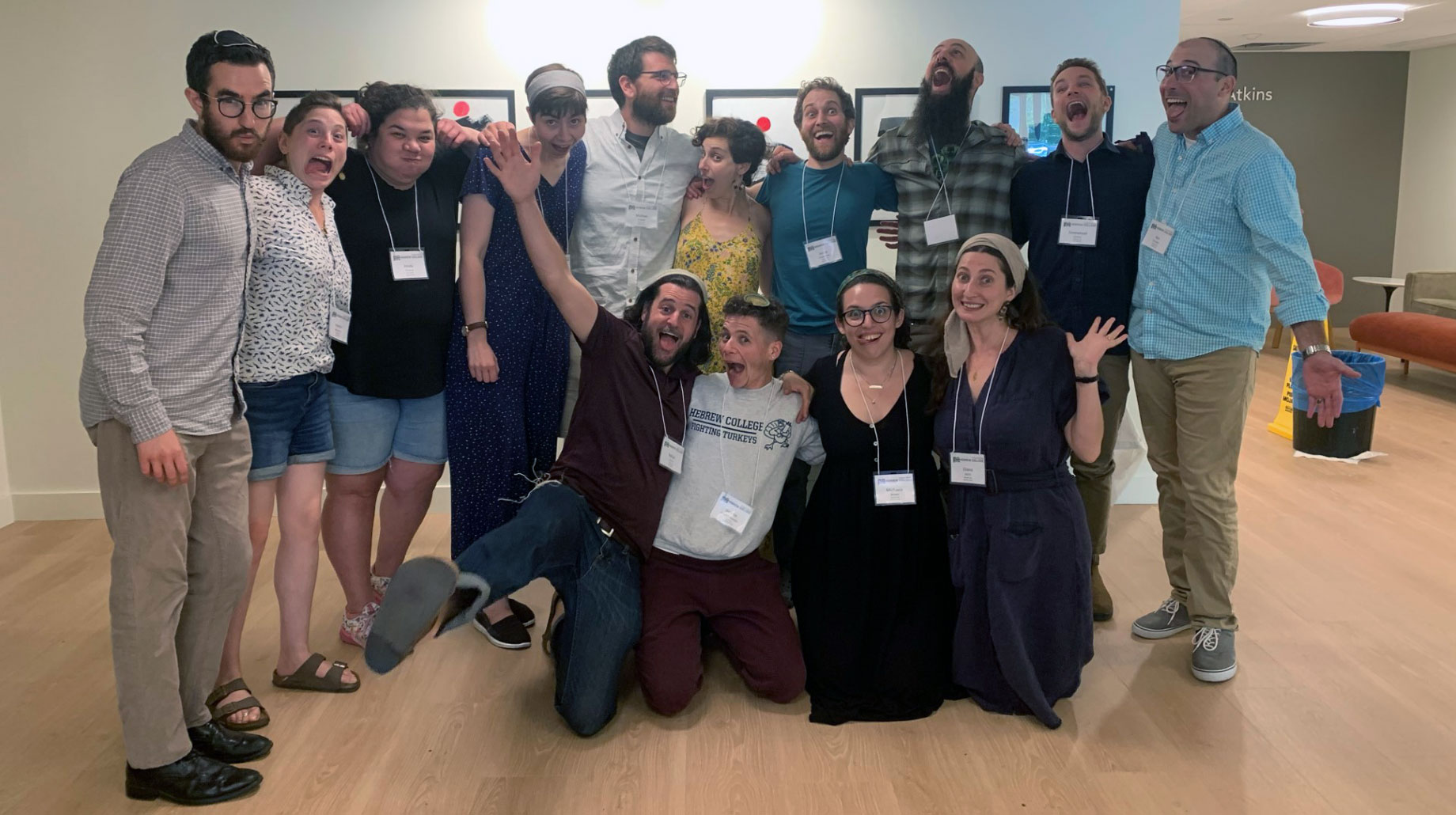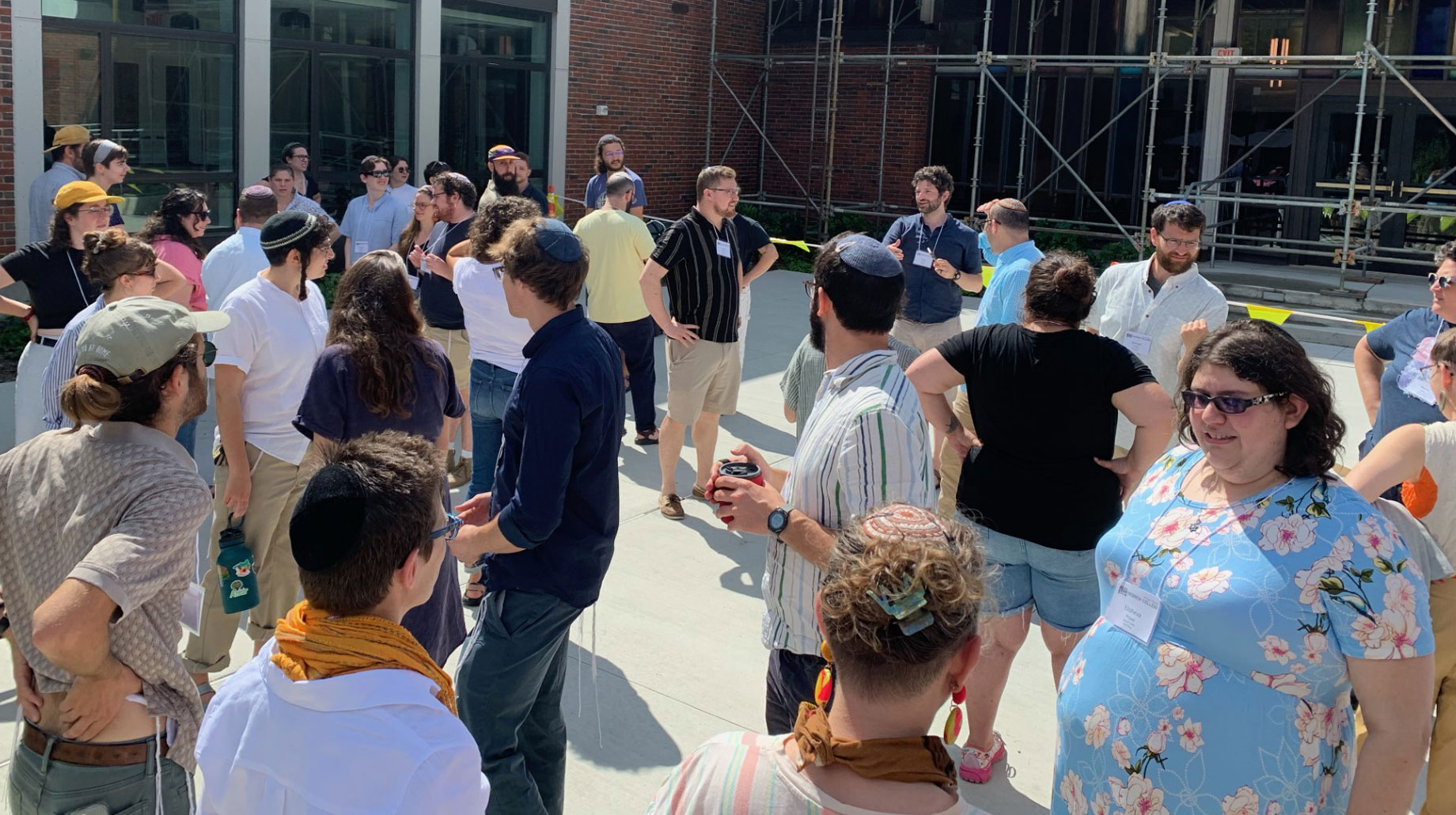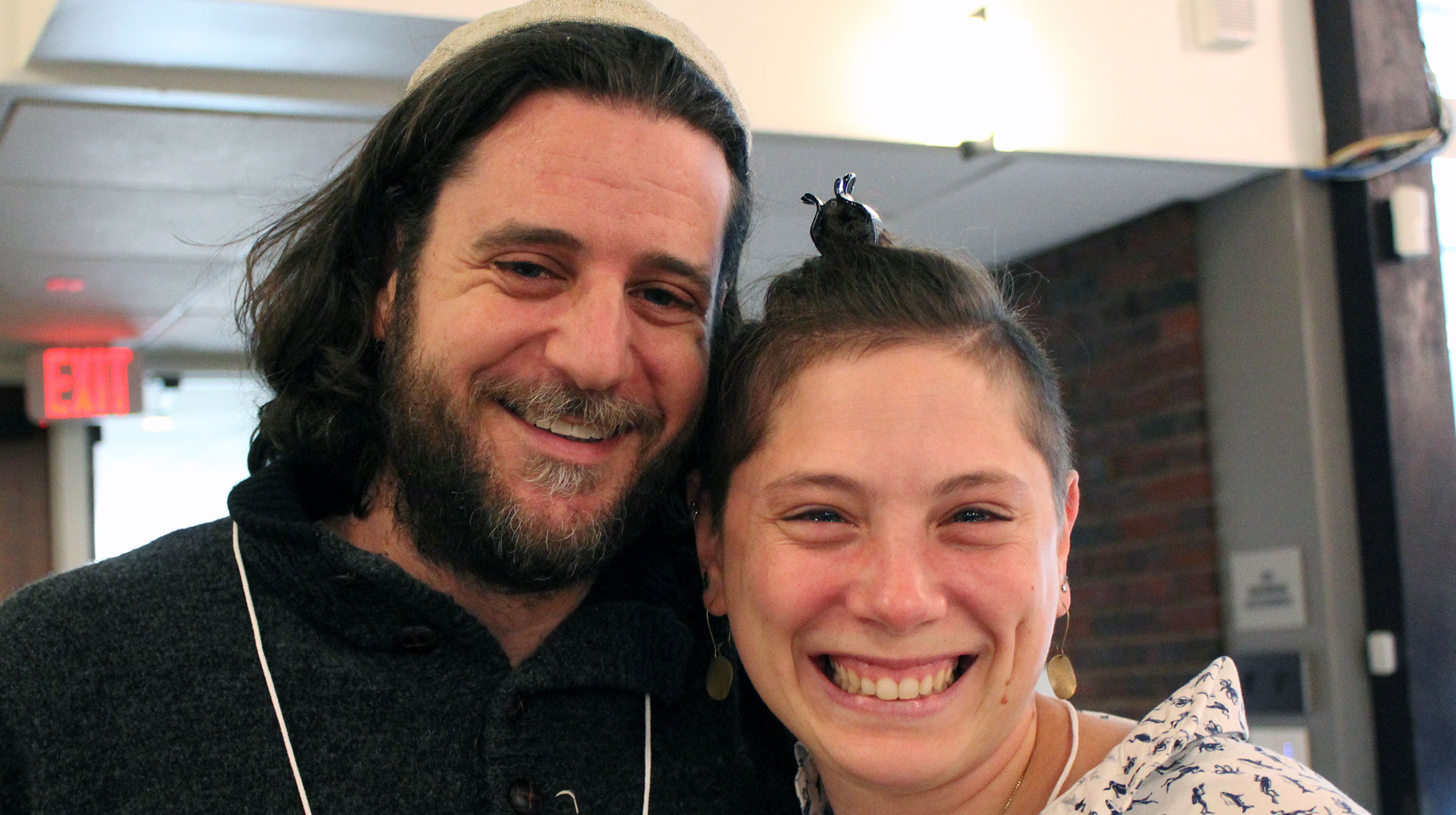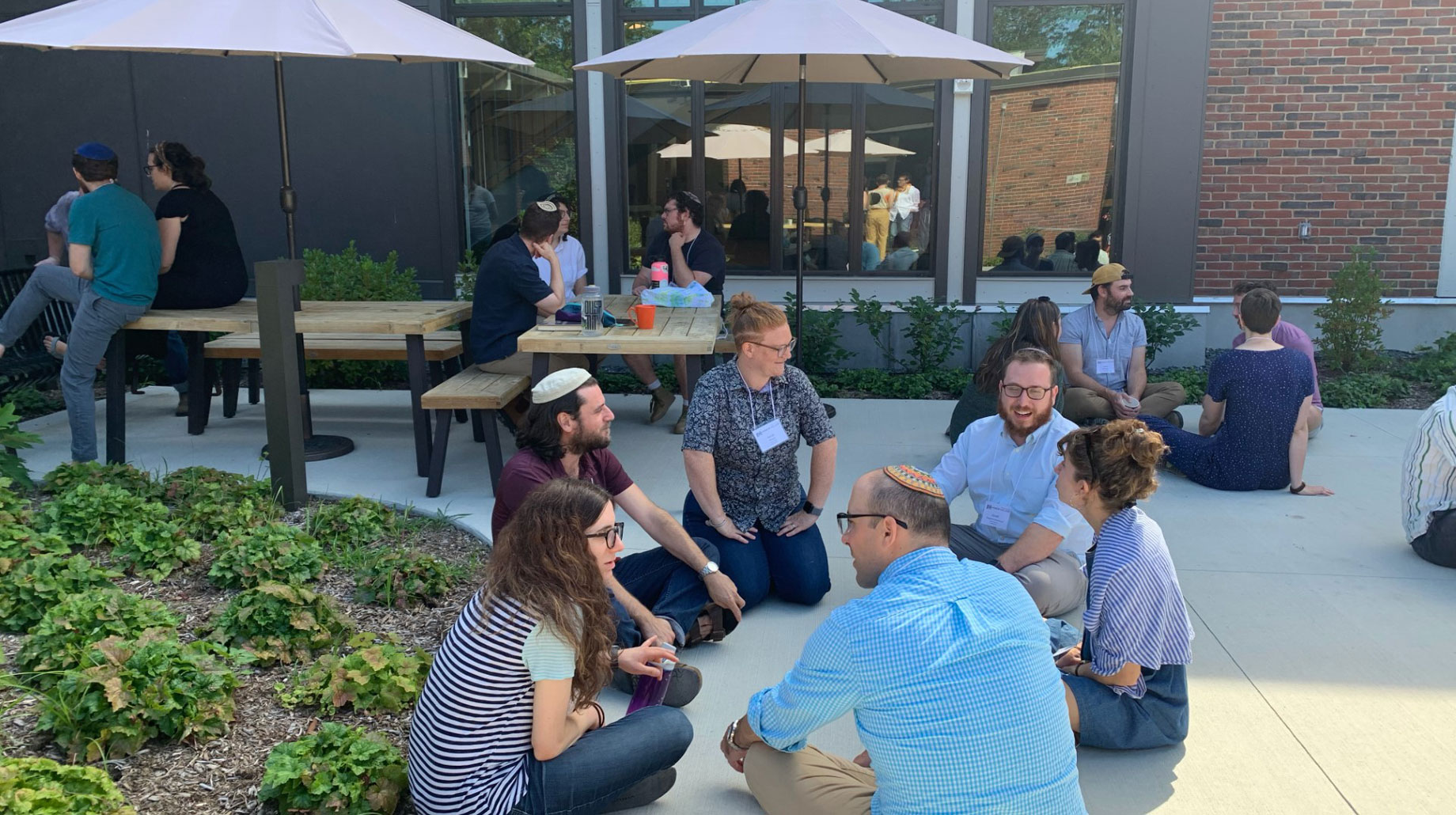News Highlights Opening Doors: Hebrew College President Anisfeld Welcomes Students Back to Campus
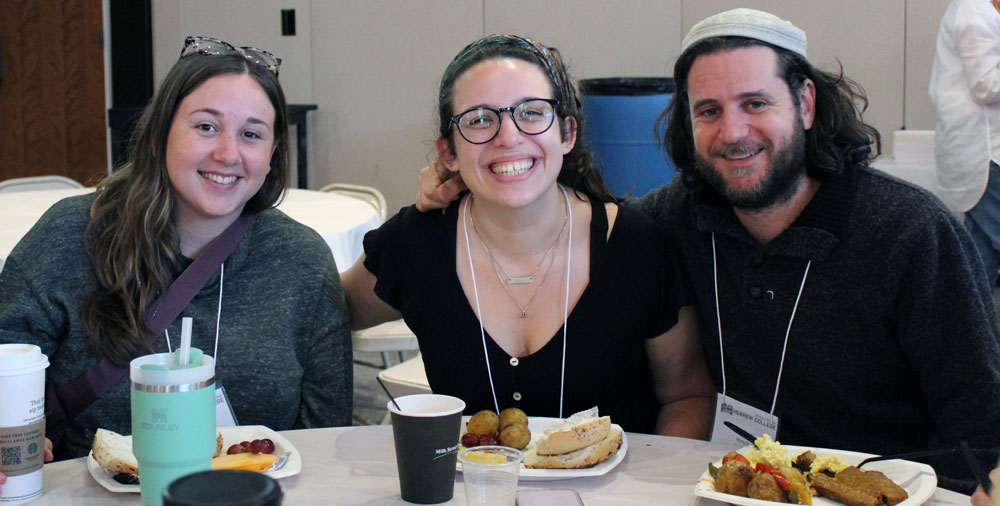
I want to begin by thanking our Board of Trustees, and in particular, our new chair, Nancy Kaplan Belsky, for conceiving of this Radical Hospitality Breakfast and making it possible for us to gather and enjoy this delicious feast.
In the spirit of this gathering, I want to say a few words this morning about hospitality.
Hachnasat orchim. The mitzvah, the sacred obligation, of welcoming guests.
I will forever remember the way our receptionist, Tanya McCann (who has been working at the College for 21 years!), introduced herself at our opening breakfast on this new campus last January. She said, “Hi, I’m Tanya. I open doors.”
I carry her words with me as an intention, a kavanah, for all of us.
May we each see ourselves as responsible for opening doors –
Doors of learning, and of Torah
Doors of community, and of Jewish life
The doors of our hearts
The doors of our homes.
In Masechet Shabbat of the Babylonian Talmud, Rabbi Yehuda teaches in the name of Rav. “Welcoming guests is greater than receiving the face of the Shechina.” The proof text brought is the story of Abraham, at the beginning of Parashat Va’yera, who was in the midst of a spiritual encounter — an encounter with the Divine Presence — when three strangers passed by the entrance of his tent.
According to my favorite reading of the text, Abraham said to God (I’m paraphrasing here): “Excuse me, God, but I have more important things to do. There are strangers at my door in need of food, water, and rest.” God, in this interpretation, not only forgives but honors the interruption. To me, there is a powerful message — and warning – embedded in this reading. Do not get so wrapped up in your own spiritual search that you lose sight of the needs of those around you. Perhaps, in fact, the depth of our relationship with God is manifest in our capacity to see and respond to the stranger before us.
According to another reading of the text, Abraham’s encounter with God and his encounter with the visitors at the entrance of his tent are not two separate encounters, but one. The visitors do not interrupt the divine encounter — they are the divine encounter. The story’s essential message lies in Abraham’s capacity to see the Divine Presence within the faces of the strangers at his door.
This teaching about welcoming guests invites us into the stance of host — wherever we are, we are summoned to pay attention, to be attuned to who might be passing by the entrance of our tent, who might be in need of physical, emotional, or spiritual sustenance.
But, of course, we all move back and forth continually between being “hosts” and being “guests.” I would venture to say that each of us, whether we’ve been here for a day or a year or a decade or two, will walk in the doors of this campus some mornings feeling at home enough to welcome others — while, on other mornings, we will walk in feeling lost enough to be in need of welcome ourselves.
A midrash from Devarim Rabbah on this week’s parsha, Ki Tavo, offers another image that I hope we can carry with us into this year.
אָמַר הַקָּדוֹשׁ בָּרוּךְ הוּא אִם הָלַכְתָּ לְהִתְפַּלֵּל בְּתוֹךְ בֵּית הַכְּנֶסֶת אַל תַּעֲמֹד עַל הַפֶּתַח הַחִיצוֹן לְהִתְפַּלֵּל שָׁם, אֶלָּא הֱוֵי מִתְכַּוֵּן לְהִכָּנֵס דֶּלֶת לִפְנִים מִדֶּלֶת, לִשְׁקֹד עַל דַּלְתִּי, אֵין כְּתִיב, אֶלָּא עַל דַּלְתֹתַי, שְׁתֵּי דְּלָתוֹת, וְלָמָּה כֵן, שֶׁהַקָּדוֹשׁ בָּרוּךְ הוּא מוֹנֶה פְּסִיעוֹתֶיךָ וְנוֹתֵן לְךָ שָׂכָר.
The Holy One of Blessing said: “If you go to pray in a house of worship, don’t stand by the outer entrance to pray. Rather, let it be your intention to enter fully, door after door. The text doesn’t say, ‘Stand at My doorway’ but rather, ‘Stand at My doorways.’ Why is this so? Because the Holy Blessed One counts each and every one of your steps and gives you reward for each.”
Now, I confess that when I enter a room, I like a good exit strategy as much as the next person. It’s not uncommon for me to think sheepishly of this midrash as I find a seat as close to the door of the Beit Midrash as possible!
But part of the reason I love the imagery of this midrash is because I think it understands this. It understands that entering fully — into our prayer, into our learning, into community, into our lives — can be hard. Each step we take to be more fully present asks something of us. Sometimes it asks a lot. If that weren’t the case, why would each and every step be counted and rewarded by the Holy Blessed One?
This is my radical hospitality bracha for all of us we begin this year together:
May we open doors to those in need of welcome, which may be any one of us.
May we open our hands to those in need of nourishment, which will be each of us.
May we open our hearts, that we may be more deeply present.
May the Holy One reward every step we take.
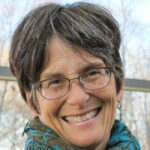 Rabbi Sharon Cohen Anisfeld is President of Hebrew College in Newton, MA.
Rabbi Sharon Cohen Anisfeld is President of Hebrew College in Newton, MA.


